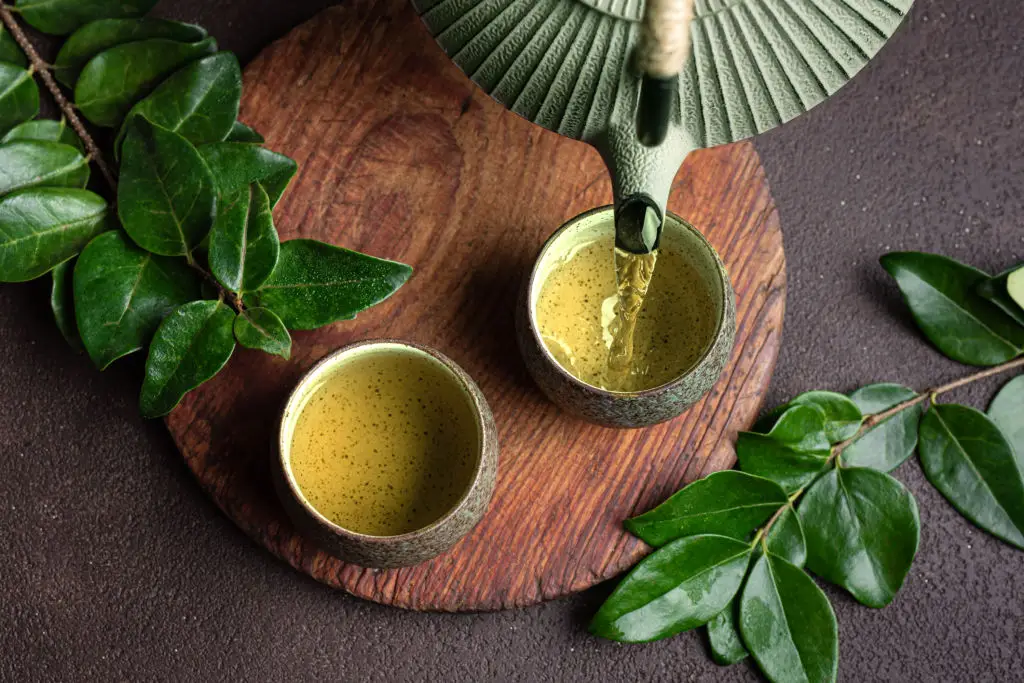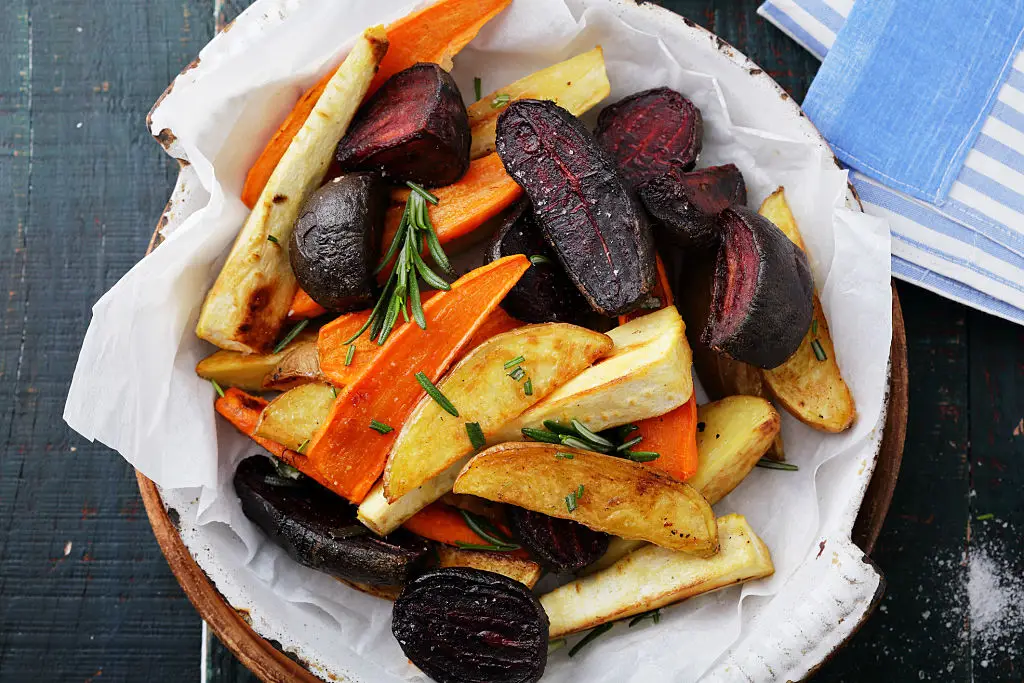Winter Wellness: 9 Immune-Boosting Superfoods to Beat the Seasonal Slump
Winter can be a beautiful invitation to slow down and rest, but it’s also a season when our energy sometimes wanes and the sniffles seem to linger. When daylight is scarce and our social calendars vie with frosty nights, keeping our immune systems resilient becomes an act of gentle, vital self-care. The good news? You don’t need fancy supplements or rigid routines to help your body thrive. Everyday foods found in the grocery store—many of them comforting, hearty, and delicious—contain the nutrients your immune system loves most. In fact, some of the world’s most celebrated “superfoods” are especially abundant in winter and have a long history of helping communities stay strong through the cold months. From vitamin C–packed citrus to humble root vegetables and soothing cups of tea, these ingredients work quietly behind the scenes, reinforcing your natural defenses, nourishing your body, and even boosting your mood. Curious how to make the most of this season’s edible gifts? Explore these nine immune-supporting superfoods, each one blending tradition and new science, to help you feel your best all winter long.
1. Citrus Fruits: Oranges and Grapefruit for Vitamin C

Few images evoke winter mornings more than a bright, juicy orange sliced alongside breakfast. Citrus fruits like oranges and grapefruit are not only refreshing—they’re brimming with vitamin C, a vital antioxidant your immune system needs to function at its best. While many people associate vitamin C with high-dose supplements, nutrition experts suggest the real magic happens with steady, daily intake from whole foods like these sunshine-colored fruits. Oranges are a classic pick, but you can also reach for clementines, tangerines, and ruby red grapefruits to keep things interesting. Each variety offers its own subtle flavor and a generous burst of immune support, helping your body create white blood cells and fend off common cold-weather bugs. If peeling an orange doesn’t sound exciting, try adding citrus wedges to winter salads or swirling a squeeze of fresh juice into warm herbal tea. Remember, it’s not about chasing a single “cure”—it’s about welcoming more simple, nourishing moments into your day. Even a snack of sliced clementines can become a small act of self-care, brightening the season and supporting your body’s natural vitality.
2. Berries: Antioxidant Powerhouses for Everyday Immunity

Sweet, tangy, and vibrantly colored, berries are a well-loved superfood for a reason. Blueberries, strawberries, blackberries, and raspberries each pack a concentrated dose of antioxidants that help your immune system stay strong even when the temperature drops. Antioxidants act as tiny defenders, reducing inflammation and supporting your body’s natural repair processes. While summer might be peak season, winter offers its own advantages—frozen berries, often picked at their ripest, are easy to keep on hand and just as nutritious as fresh. You can toss a handful into oatmeal, blend them into yogurt, or simmer gently with a bit of cinnamon for a comforting fruit compote. Research continues to discover new berry compounds that help bolster immunity and promote brain health, making them one of the most versatile additions to your winter table. Even in the depths of January, a sprinkle of berries can serve as a sweet reminder that nourishing yourself can feel both joyful and satisfying. Give yourself permission to enjoy their color and flavor as a daily treat; your immune system—and tastebuds—will thank you.
3. Functional Mushrooms: Shiitake, Lion's Mane, and Chaga

Mushrooms have quietly played a starring role in traditional medicine for centuries, and now science is beginning to catch up. Functional mushrooms like shiitake, lion’s mane, and chaga are celebrated for their immune-supporting properties, thanks to compounds called beta-glucans and other naturally occurring nutrients. Whether enjoyed in a savory soup, sautéed alongside leafy greens, or even stirred into a trendy mushroom coffee, these fungi can offer accessible, everyday immune support. Shiitake mushrooms, for example, contain lentinan—a substance some studies connect to more robust immune activity—while chaga mushrooms are gaining praise for their antioxidant potential. If you’re new to mushrooms, start simple: add sliced mushrooms to your next stir-fry or sip a cup of mushroom-based broth for a warming winter ritual. The beauty of incorporating these superfoods isn’t just in their wellness benefits, but in the way they encourage you to slow down and nourish yourself mindfully. Let your winter kitchen be a place of both curiosity and comfort, one flavorful experiment at a time.
4. Leafy Greens: Winter’s Vitamins in Every Leaf

When the produce aisle looks bare, leafy greens like spinach and kale quietly shine as approachable winter heroes. These vegetables are packed with vitamins A, C, and K, as well as antioxidants that your immune system craves during cold and flu season. Even when local produce seems scarce, spinach and kale are surprisingly hardy and available year-round. Nutrition experts admire their powerful blend of nutrients, which help shield your cells and support overall wellness. Try adding spinach to winter soups, cooking kale into hearty stews, or blending a big handful of greens into your morning smoothie. Both options fit neatly into busy lives—fresh or frozen, tossed in last minute or prepped for meals ahead. Some people enjoy experimenting with massaged kale salads, while others find a quick sauté with olive oil the easiest way to enjoy their greens. Whether you’re an adventurous cook or prefer simple, comforting dishes, these leafy vegetables offer steadfast support for your body’s seasonal needs. With every serving, you’re investing in steady energy, gentle detoxification, and daily immune resilience.
5. Garlic: Nature’s Classic Cold-Fighting Ally

Garlic often gets credit as one of winter’s oldest wellness secrets—and for good reason. Packed with compounds such as allicin, garlic is believed to have antimicrobial and immune-modulating properties that can help tip the odds in your body’s favor. Generations have relied on garlic as a household staple for managing colds, and while research continues, there’s encouragement to be found in both tradition and emerging science. Cooking with garlic is an easy, comforting way to add flavor and potential health benefits to your meals. Whether gently sautéed as the base for soups, minced into homemade dressings, or enjoyed raw in your favorite dips, garlic brings not only warmth but also the promise of gentle immune defense. If you’re feeling bold, try adding a crushed clove to a mug of warm broth for an old-fashioned tonic. The key is to use garlic frequently but at your own pace—enjoying its taste, savoring the ritual, and knowing that even small, everyday choices can make a difference in your winter wellness journey.
6. Yogurt and Probiotic Ferments: Gut Health, Immune Strength

While most people think of yogurt as a summer breakfast, its gentle, creamy tang can be especially soothing in the colder months—especially when it comes to keeping your immune system robust. Yogurt and other probiotic-rich foods like kefir and miso offer a living bounty of beneficial bacteria, often referred to as probiotics. These tiny helpers support the balance of your gut microbiome, an ecosystem closely linked to immune health. Nutrition experts highlight how a happy, diverse gut can help the body defend itself from seasonal bugs. If dairy isn’t your preference, plant-based yogurts with added probiotics are widely available. Enjoy plain yogurt as a snack, blend it into smoothies, or use it as a cooling topping for roasted root veggies or spicy soups. By gathering ferments into your regular rotation, you invite gentle, daily immune support in a way that’s flexible, satisfying, and supportive of your whole self—body and mind alike.
7. Nuts and Seeds: Vitamin E and Satisfying Snacking

Crunchy, portable, and full of flavor, nuts and seeds shine as winter snacks that quietly work behind the scenes to nurture your immune system. Almonds, sunflower seeds, pumpkin seeds, and walnuts bristle with vitamin E—a nutrient valued for its antioxidant properties and its supporting role in immune cell production. Paired with healthy fats and plant-based minerals, this nutrient mix helps maintain your energy and resilience through busy, chilly days. Throw a handful of mixed nuts into your bag, sprinkle sunflower seeds over morning oatmeal, or bake pumpkin seeds for a savory topper to winter soups. The versatility of nuts and seeds means you can easily tailor your intake to your lifestyle and preferences. Whether you enjoy them raw, roasted, or tossed in homemade trail mix, you’re choosing a snack that celebrates both taste and function. Try savoring each bite as a kind act for your body—reminding yourself that immunity is built from many small, nourishing moments throughout the season.
8. Tea: Antioxidant-Rich Comfort in a Mug

A steaming mug of tea is one of winter’s most familiar comforts, but it also happens to be a quiet immune system hero. Both green and black teas contain antioxidants—including catechins and theaflavins—that help protect your cells and may reduce inflammation. Herbal teas like ginger, echinacea, or chamomile offer their own soothing benefits, often acting as gentle supporters for immunity and relaxation. Whether you’re drawn to the grassy notes of green tea or a calming nighttime blend, drinking tea means more than just hydration—it’s a ritual that invites you to pause, breathe deeply, and care for yourself, even in small ways. Make a habit of brewing a cup during your afternoon break, or let a hot mug mark the transition between evening chores and restful downtime. The beauty of tea is in its adaptability—you can adjust each cup for warmth, flavor, and personal wellness needs, adding honey, lemon, or spices as you like. With every sip, you’re building a shield of comfort and resilience to carry you through winter’s ups and downs.
9. Root Vegetables: Carrots and Sweet Potatoes

When the wind howls and the ground is icy, root vegetables like carrots and sweet potatoes offer hearty, grounding nourishment that feels as good for the soul as it does for the body. These winter staples are naturally rich in beta-carotene, which your body converts into vitamin A—a micronutrient prized for its role in keeping skin and mucous membranes healthy, both essential to strong immunity. Unlike some fleeting produce, carrots and sweet potatoes store well, making them accessible and budget-friendly throughout the winter months. Roast them with a sprinkle of cinnamon, mash them into soups, or slice them into oven-baked fries for a creative twist. As you savor their natural sweetness and warmth, you’re providing your body the kind of steady energy and immune support that makes winter’s challenges feel a little more manageable. Every satisfying bite of these vibrant vegetables is a reminder: nurturing yourself can be both comforting and deeply nourishing, no matter how cold it gets outside.
A Season of Nourishment and Self-Care

As the days grow shorter and the air takes on its winter chill, remember that supporting your immune system doesn’t mean chasing perfection or adopting drastic habits. It’s about weaving small acts of care into your daily life—choosing foods that not only fuel your body but bring color, warmth, and joy to your table. Each of these nine superfoods offers something unique: a hint of sunshine on gray mornings, a boost of energy before braving the cold, a gentle ritual that grounds you in the present. By making thoughtful, nourishing choices—even when you’re busy or tired—you’re honoring both your health and your humanity. Over time, these steady, wintertime habits quietly build your resilience, helping you greet the season with greater strength and a kind of well-being that radiates from the inside out. Whether you celebrate big changes or simply enjoy the little comforts, know that every step you take toward winter wellness is a gift to yourself that lasts long after the snow melts. You—and your immune system—deserve nothing less.
